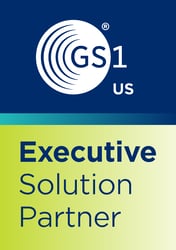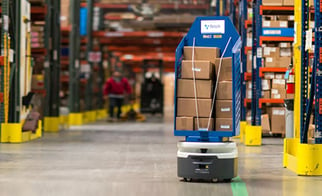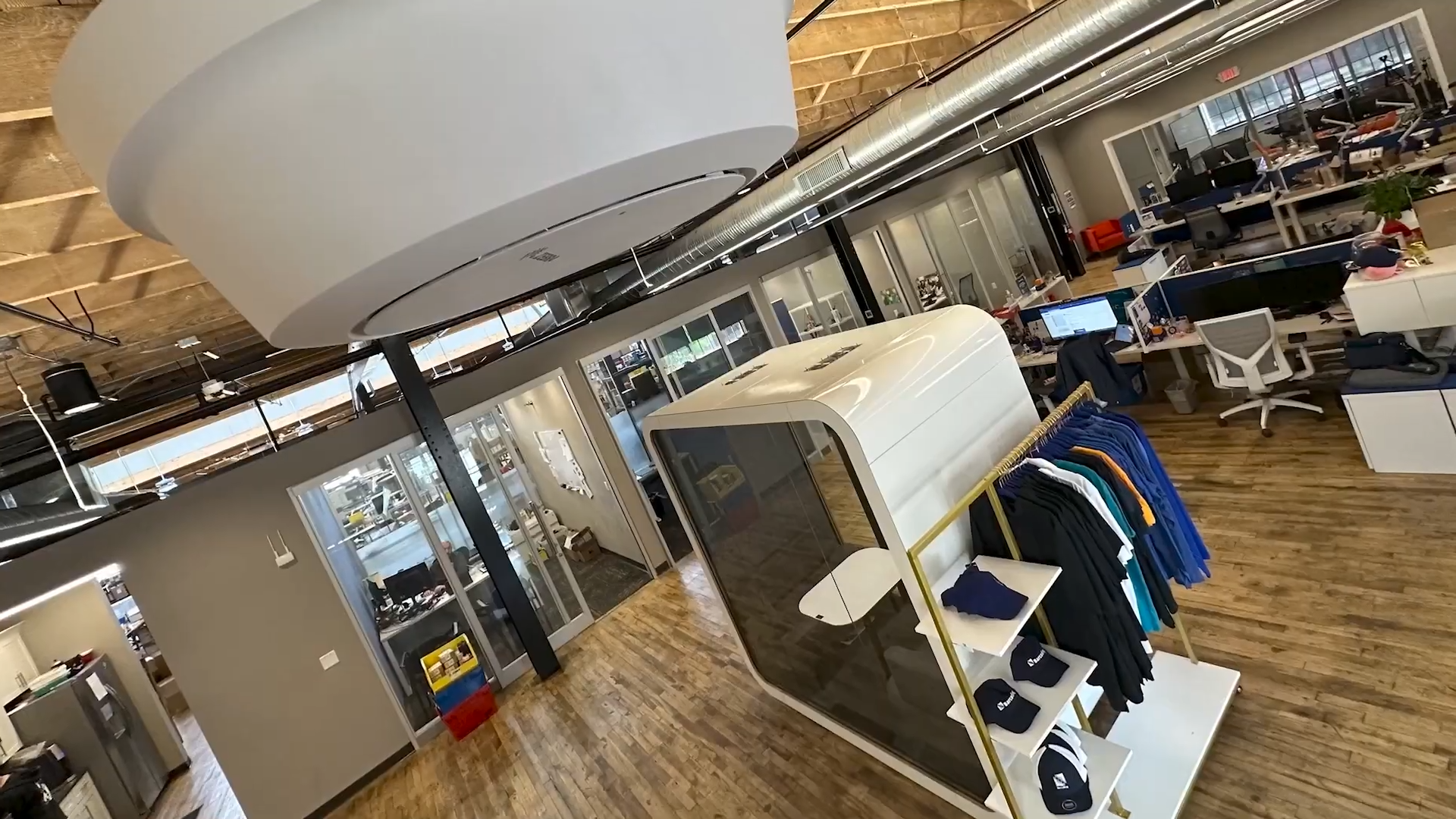Updates to the FDA’s Food Safety Modernization Act Section 204 (FSMA 204) rule changes will impact stakeholders throughout the entire food supply chain—including processors, manufacturers, and wholesalers.
Our first look at the changes focused on standards and technologies quick-serve restaurants (QSRs) and grocery operators have already begun using to solve operational challenges involving supply chain issues and labor shortages.
QSRs in particular have begun blazing the trail for data-driven decision-making and operational improvements in the food supply chain.
In fact, leaders in the QSR space have been proving use cases for data capture technologies like RAIN RFID to increase efficiency, reduce waste, and improve profitability well before the announcement of the FSMA 204 update. And a lot of their learnings apply upstream, too.
With compliance requirements on the horizon for stakeholders all across the food supply chain, now is the time for processors and wholesalers to get familiar with the rule requirements.
Recognizing the complexity of the food supply chain and the close cooperation needed for widespread adoption and compliance, the FDA is giving businesses until January 20, 2026, to fully comply.
But compliance is really just the start of what can be gained by implementing data capture technologies and embracing industry data standards.
The level of visibility that food processors, wholesalers, and logistics providers can achieve using data capture technologies and automation can be game-changing. Transparency into the lifecycle of food products—as well as the operational practices involved in moving them—can help these businesses improve food traceability while reducing waste, optimizing transport, ensuring freshness, and improving relationships with trading partners.
Our video with Zebra Technologies provides a nice summary!
Updates to FSMA 204: Food Traceability & Digital Records
Food processors and wholesalers are among the parties required by FSMA 204 to establish and maintain a traceability plan for foods on the FDA’s Food Traceability List, and to provide electronic records within 24 hours (or a reasonable, agreed-upon time frame) after a request by the FDA. These electronic records are required to include traceability lot codes (TLCs), as well as Key Data Elements (KDEs) for all Critical Tracking Events (CTEs) associated with the food products in question.
CTEs associated with processors and wholesalers can include (but aren’t limited to):
- Cooling
- Initial packing
- First land-based receipt (receiving from a fishing vessel)
- Shipping
- Receiving
- Transformation
Each CTE has its own associated set of KDEs required for capture and reporting, but in short, KDEs provide the answers to who, what, when, where, and why questions related to every item moving through the supply chain: responsible parties, traceability lot codes, times, locations, and the nature of the event.
How Data Standards & Data Capture Technologies Support More Than Compliance
It might be impossible to overstate the importance of compliance, since meeting regulatory requirements is a matter of life and death for most businesses. It’s critical to note that, even while there is a three-year window for achieving full FSMA 204 compliance, retailers like leading grocers and QSRs can have their own supplier mandates.
How this affects processors and wholesalers will certainly differ depending on the specific products they handle, but basics include:
- Recording, storing, and sharing import numbers and TLCs (so that this information can follow the product to final sale)
- Recording and storing KDEs for all CTEs that take place within the operation
For example, a food processor would capture date, time, and location of the receipt of products along with the TLCs of those products. After processing, food products are assigned new TLCs (because they’ve undergone a transformation)—but proper recordkeeping associates the new TLCs with the original produce’s TLCs, so they can be traced quickly and easily back to their origins.
 Operators in processing and wholesaling will have to embrace the data standards that ensure interoperability and transparency where it’s most needed, and this is where GS1 US plays an important part. It’s highly recommended that suppliers establish their own GS1-issued company prefix, Global Location Number (GLN), and Global Trade Item Numbers (GTINs) for products. As a GS1 US Certified Identification Partner, Barcoding can support stakeholders in establishing these essential GS1 identifiers.
Operators in processing and wholesaling will have to embrace the data standards that ensure interoperability and transparency where it’s most needed, and this is where GS1 US plays an important part. It’s highly recommended that suppliers establish their own GS1-issued company prefix, Global Location Number (GLN), and Global Trade Item Numbers (GTINs) for products. As a GS1 US Certified Identification Partner, Barcoding can support stakeholders in establishing these essential GS1 identifiers.
Electronic Product Code Information Services (EPCIS 2.0) is the current GS1 US data standard that provides a foundation of interoperability for trading partners in the food supply chain. EPCIS events correspond to FSMA 204 CTEs, and the data elements correspond to required KDEs.
Data Capture Technologies Can Help Get More Business Value from Reporting Requirements
While FSMA 204 does not prescribe specific technology for capturing or storing data, it does require electronic records to be supplied within 24 hours of request. Previously, we covered QSRs and grocers, and how tech-enabled data capture is helping them receive, record, store, and manage product inventory more effectively. Upstream trade partners like processors and wholesalers face similar opportunities.
Whether the technology involves barcode scanning or RAIN RFID, tech-enabled data capture allows businesses to track, record, and store more robust and accurate information about every step that every product makes through its operations. That kind of transparency has immense potential to improve food safety with better recall preparedness, but that’s not all.
Incorporating data capture and automation technologies enables businesses to spend less time and effort yet record more product data, more accurately. That allows the same data set needed for FSMA 204 compliance to deliver visibility into operations that can drive major improvements:
- Verification of shipment and receipt
- First-in-first-out / first-expiry-first-out inventory and expiration management
- Reductions in errors, mispicks, shorts, overages, etc.
- Improvements in order accuracy
- Optimized shipments
- Reduced billing errors
- Improved allergen and nutritional information to consumers
- Waste reduction
- Labor savings
Don’t Wait for 2026 to Get Started
FSMA 204’s three-year compliance window makes for a pretty clear acknowledgment of time, effort, and investment needed to meet the new requirements. Plus, choosing the right data capture technology solutions can add an extra layer of complexity. Investments this important need to be right the first time.
So what can you do? Start today and be proactive. Familiarize yourself with the changes to FSMA 204. Reach out to suppliers and customers. And look for technology integration expertise to support you on your journey to compliance and more—whether it’s GS1 US Standards, barcode label and scanning solutions, RAIN RFID and IoT-enabled automation, or integrating systems and solutions to put the data to work for your operations.
Get a clearer picture of the many ways RAIN RFID can deliver the benefits of near-real-time, end-to-end visibility with our free infographic. Click here or below to get your copy today.



 Operators in processing and wholesaling will have to embrace the data standards that ensure interoperability and transparency where it’s most needed, and this is where GS1 US plays an important part. It’s highly recommended that suppliers establish their own
Operators in processing and wholesaling will have to embrace the data standards that ensure interoperability and transparency where it’s most needed, and this is where GS1 US plays an important part. It’s highly recommended that suppliers establish their own 



